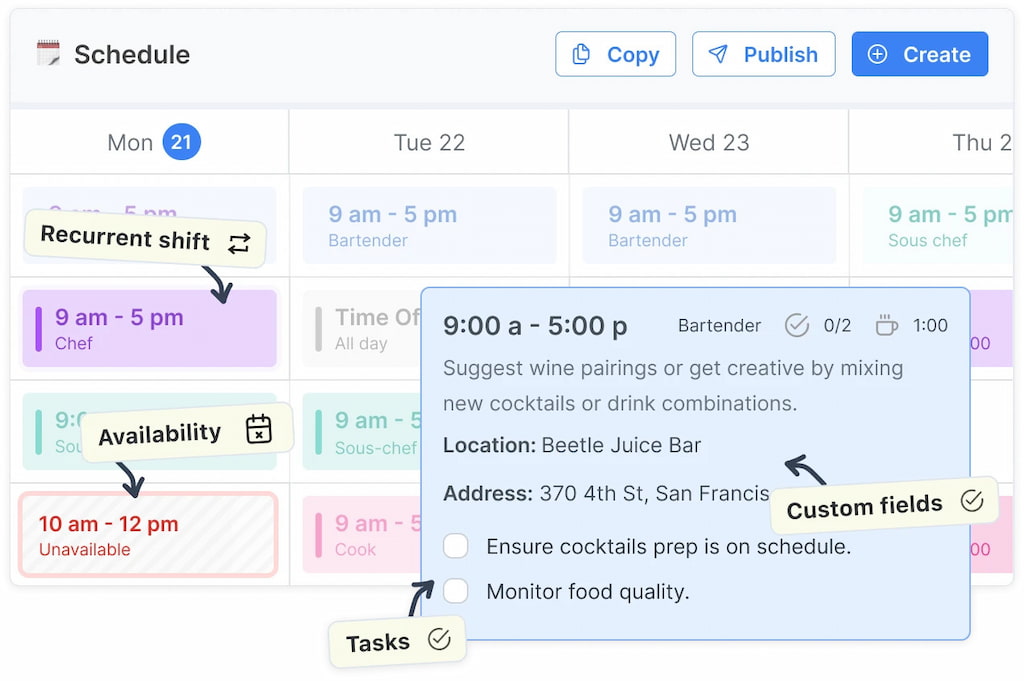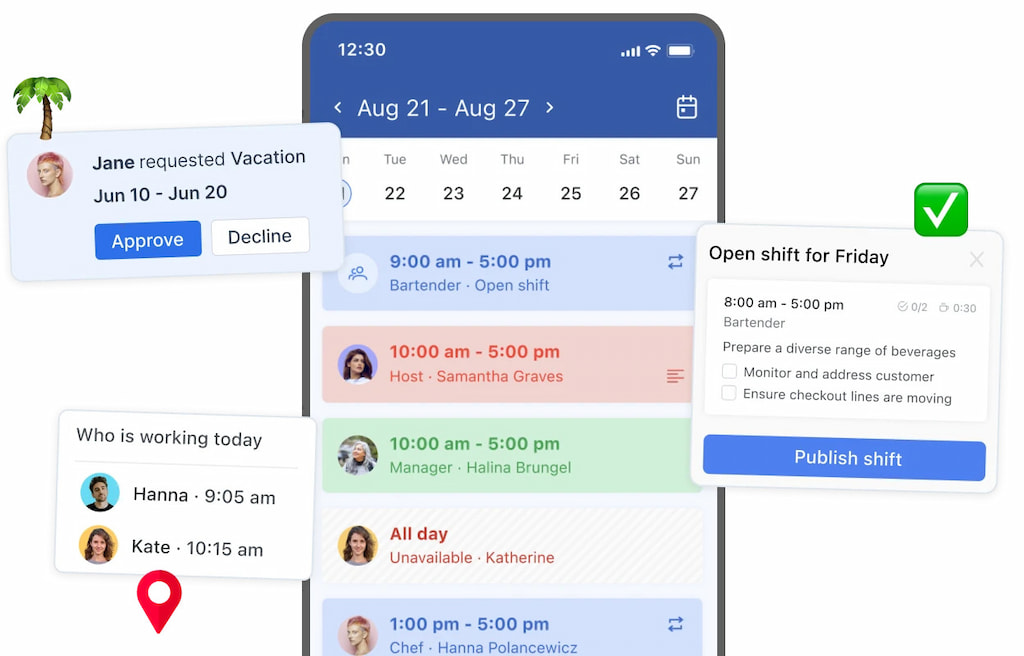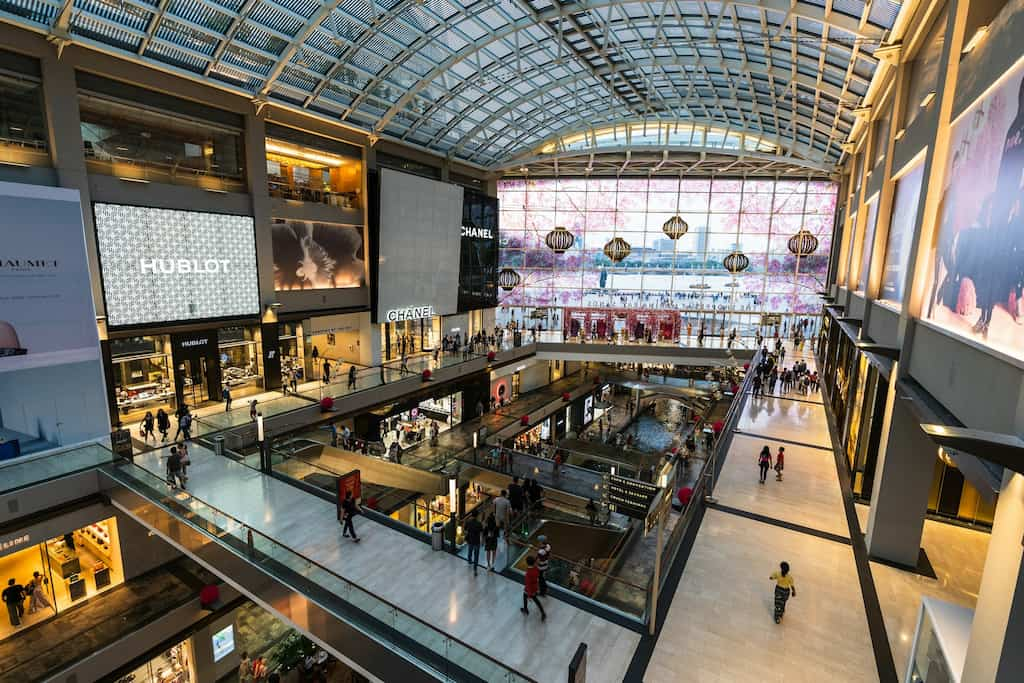The store’s about to open, one cashier is late, another swapped shifts over text, and your assistant manager can’t find the updated schedule. Every minute you spend rearranging shifts is a minute lost in sales. That’s where scheduling software for retail comes in. The right tool helps you build accurate rosters, fill gaps fast, and keep communication clear—all without messy spreadsheets or WhatsApp chaos. In this guide, we’ll break down the best retail employee scheduling software, key features that matter, and how a platform like Shifts by Everhour can make scheduling and time tracking one seamless process.
Let’s get straight to the free employee shift scheduling apps.
🧠 What Is Retail Employee Scheduling Software?
Retail employee scheduling software automates how you assign, track, and communicate staff shifts across stores or departments. It’s not just about who works when — it’s about optimizing coverage, reducing labor costs, and keeping your floor staffed without overspending. The best tools include:
- 🖱️ Drag-and-drop scheduling to build shifts quickly
- 👥 Availability tracking to avoid conflicts
- ⚡ Real-time updates for last-minute changes
- ⏱️ Time tracking and payroll sync for accuracy
- 📱 Mobile apps so staff can check shifts or swap on the go
Retail scheduling software isn’t a “nice-to-have” — it’s the core of workforce management. As labor shortages and hybrid staffing continue to challenge retail, digital scheduling helps managers stay agile while giving employees more flexibility and control.
Why It Matters Now
The retail workforce has changed dramatically. Today’s employees expect transparency and flexibility, while managers need tools that integrate scheduling, time tracking, and communication in one system. According to TimeForge, optimized scheduling can curb labor costs by aligning staff with demand — giving retailers tighter control over labor spend. [TimeForge Labor Management]
From small boutiques to multi‑location chains, these systems help you:
- 🚫 Prevent overstaffing or burnout
- 📊 Align labor with real-time demand (sales data, traffic, etc.)
- 🔔 Reduce no‑shows with automated reminders
- 💡 Improve morale through predictable scheduling and fair shift distribution
In short, great scheduling software lets retail businesses operate smarter — not just faster.
👀 Key Features of Great Retail Scheduling Software
1. 🖱️ Visual shift builder
A drag-and-drop interface helps managers build, duplicate, and adjust shifts in seconds. Instead of redoing an entire week’s schedule, you can reuse templates and edit one slot at a time. Tools like Shifts by Everhour simplify this with an intuitive weekly calendar view and smart role-based scheduling.
2. ⚡ Real-time updates & notifications
Retail moves fast. Employees swap shifts, take days off, or call in sick. With mobile notifications, everyone stays in sync — no missed messages or confusion about who’s on duty.
3. ⏱️ Time tracking integration
Knowing who’s scheduled is only half the picture. Time tracking tells you who actually showed up and how long they worked. Shifts by Everhour connects both worlds — tracking actual hours against planned shifts to ensure payroll accuracy and detect early/late clock-ins automatically.
4. 🏢 Multi-location & department scheduling
Large retailers often manage teams across several stores. Advanced tools let you filter schedules by store, department, or role (e.g., cashiers, stockers, managers) while maintaining a single overview dashboard.
5. 🤝 Employee empowerment & communication
The best systems give staff access to self-service tools — availability input, time-off requests, and shift swaps — plus a built-in chat or announcement board for team-wide updates.
6. 📊 Analytics & compliance
Modern software tracks labor costs, overtime, and compliance with local labor laws, ensuring schedules stay fair and budgets stay balanced.
🔨 Best Retail Employee Scheduling Software
| Tool | Key Features | Pricing/Plan | Ideal For |
| Shifts by Everhour | Drag-and-drop scheduling; mobile time tracking; shift swaps; labor reports; multi-location support | Free & paid plans | Retail stores needing unified scheduling + time tracking |
| Homebase | Free scheduling; time clock; hiring tools; labor compliance alerts; POS integrations | Free plan available | Retail shops and cafes with hourly teams |
| Connecteam | Shift templates; GPS check-in; team chat; document sharing; role-based scheduling | Free plan up to 10 users | Multi-location retailers with field or mobile workers |
| Deputy | AI scheduling; demand forecasting; compliance tools; attendance tracking | Paid plans | Retailers needing compliance-ready scheduling and analytics |
| Sling | Employee messaging; labor budget tracking; calendar templates; availability management | Free & paid plans | Small retailers that want simple, visual scheduling |
| 7shifts | Auto-scheduling; sales integration; tip tracking; mobile manager app | Paid plans | Food & beverage retailers and hospitality chains |
| Planday | Role-based scheduling; staff cost insights; payroll integration; communication hub | Paid plans | Mid-sized retail operations with complex departments |
| ZoomShift | Shift trading; availability tracking; payroll export; real-time alerts | Paid plans | Boutique retailers needing simple team management |
| Workforce.com | Labor forecasting; time tracking; HR compliance; reporting dashboard | Paid plans | Enterprise-level retail chains seeking advanced automation |
| Buddy Punch | Shift scheduling; attendance tracking; facial recognition clock-ins; reporting tools | Free trial & paid | Retail teams wanting precise attendance monitoring |
Quick summaries
- Shifts by Everhour: Combines scheduling and time tracking, perfect for small to mid-sized retailers that value simplicity and insight.
- Homebase: Ideal for small shops—easy to use, free plan, and strong POS integrations.
- Connecteam: Best for field-heavy or multi-store retailers with strong internal comms.
- Deputy: Excellent forecasting and compliance tracking for larger operations.
- Sling: Simple, budget-friendly, and great for team messaging.
- 7shifts: Restaurant-retail hybrid solution focused on sales integration.
- Planday: Ideal for stores with multiple departments and shift types.
- ZoomShift: Streamlined option for small stores prioritizing reliability.
- Workforce.com: Robust enterprise platform with deep reporting.
- Buddy Punch: Great for retailers prioritizing attendance accuracy and transparency.
🔵 How Shifts by Everhour Fits Retail Teams
In retail, efficiency comes down to coordination. Shifts by Everhour integrates scheduling, communication, and time tracking in a single, lightweight system designed for managers and staff alike. Here’s how it helps retail businesses in practice:
- Schedule smarter: Build weekly rosters using drag-and-drop templates and assign by role or store.

- Track actual hours: Employees clock in/out directly from mobile, syncing automatically with scheduled shifts.
- Spot issues instantly: Get real-time visibility into no-shows, late clock-ins, or unexpected overtime.
- Optimize labor costs: Compare planned vs. actual hours to spot inefficiencies and keep staffing aligned with sales flow.
- Mobile-first experience: Employees always have the latest schedule, and managers can make changes anytime.

For growing retail operations, Shifts by Everhour bridges the gap between planning and performance—keeping stores covered and payroll precise.
❓ FAQs
What is the best scheduling software for small retail stores?
For small retailers, Shifts by Everhour and Homebase are excellent—they’re intuitive, affordable, and handle both scheduling and time tracking.
Can I manage multiple stores from one account?
Yes. Tools like Shifts by Everhour, Connecteam, and Planday support multi-location management, letting you oversee staff and schedules across all branches.
Do I need separate time tracking software?
Not if you use an integrated solution. Shifts by Everhour automatically tracks actual hours against schedules, reducing manual entry errors.
How do these tools help reduce labor costs?
They let you forecast demand, monitor attendance, and compare scheduled vs. actual hours—ensuring every shift aligns with sales performance.
What’s the best mobile app for retail shift management?
Shifts by Everhour, Connecteam, and Sling offer the best mobile-first experiences for managers and hourly staff alike.
Are there free options for retail scheduling?
AYes. Homebase, Connecteam, and Sling all offer free plans for smaller teams, with optional upgrades for advanced features.
🔎 Final Thoughts
The best retail employee scheduling software goes beyond filling shifts—it balances customer demand, labor budgets, and employee satisfaction. Whether you run one boutique or a nationwide chain, your scheduling tool should make work smoother, not harder.
If you’re ready to streamline how your store handles shifts, time, and communication, Shifts by Everhour brings it all together. One system, fewer errors, and a team that’s always in sync.
If managing shifts or tracking time sounds like your daily grind, Everhour keeps it all in one flow.
Many web-based employee scheduling software solutions are equipped to handle the unique scheduling requirements of retail businesses, such as managing fluctuating demand, accommodating part-time and full-time employees, handling shift swaps and substitutions, and complying with labor regulations.
- If you want more industry-specific scheduling options, check out our list of the best security guard scheduling software or the best healthcare scheduling software systems!
- Discover how to make a work schedule for employees free and streamline your planning without paying a cent.
- Explore the best franchise scheduling software for multi-location businesses!

